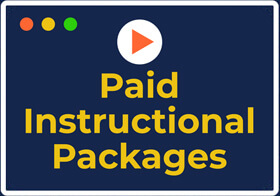Divorce is a big decision
You can get through it with your dignity and your pocketbook in tact.
Read on for real answers (we never hide the ball) on how to develop an exit strategy that gets you off to a legally advantageous start and strategically plan your divorce.

Introduction to Initial filingsThere are three kinds of divorces
Petition FL-100First court form to file for divorce, legal separation or annulment.
Summons FL-110Second court form needed as part of the initial court filings.
UCCJEA FL-105A third court form you will need if you have minor children.
Filing papers at courtHow to file
Fee WaiverHow to avoid fees and apply for a waiver
We offer a variety of free divorce resources. Click a topic to learn more.
Need more help? This section also has a paid instructional package available.
FAQ’s Related to Initial Filings
The two court forms everyone needs to fill out to get started are the Petition, which is FL-100, and the Summons, which is FL-110. If you have minor children, you will also need a third form known as the UCCJEA, which is FL-105.
You can find all three of these forms in our free Court Forms Database. You can go to our Court Forms Database, pull up the FL-100, the FL-110, and the FL-105. Fill out the forms on our website and then print them. You can then file the forms with the court.
These are orders that go into effect automatically in every case. You don’t have a choice about whether or not these restraining orders are issued. These orders are printed on the back of the Summons form. They include orders such as don’t take the children out of the State of California without your spouse’s written consent; Don’t cancel existing health insurance or life insurance coverage; and don’t sell or otherwise dispose of any assets without your spouse’s written consent.
After you have filled out the initial forms consisting of the Summons and Petition and, if you have minor children, the UCCJEA declaration, make two copies of all of your forms. Go to the Superior Court and file the forms with the court clerk. You file your divorce petition in the Superior Court in the County where you reside.
When you file a divorce petition, the court clerk will charge you a filing fee. The court increases the amount of the fee from time-to-time. Currently the fee is $435. This payment is also known as a “first appearance fee” or a “first paper fee”. Bring your check book or a credit card when you go to file your petition. You can also pay in cash. If your income is below a certain level, you may qualify for a fee waiver.
To get a fee waiver, you fill out a fee waiver application FW-001. Watch our free video on how to fill out a fee waiver application.
A fee waiver provides a number of benefits. When you file a petition for divorce, the filing fee is hundreds of dollars per person. If you want copies of court records, the court charges a fee. If you have a fee waiver, there are no filing fees or copying fees. There are other fees, including service of process fees, that the court and the sheriff won’t charge you if you have a fee waiver.
If you are receiving public benefits under certain government programs, such as food stamps, Medi-Cal, county relief or other programs, you will qualify for a fee waiver. If your household income is below a certain amount, then you will also qualify. There is a household income chart on the FW-001 fee waiver application form. Even if you don’t qualify under either of these two rules, you may still qualify, depending on your household income, expenses, and assets.
Serve your spouse.
Copies of all the papers you filed with the court clerk, which will include the divorce petition and the summons, and if you have minor children, your UCCJEA declaration. You will also need to serve your spouse with a blank Response form, which is FL-120. If you have minor children, then you also need to serve a blank UCCJEA form.
There are two common ways to accomplish “service of process”. One way is “personal service” which is when you have someone personally hand your spouse copies of the Summons, Petition, and blank Response and then fill out a “Proof of Service of Summons” form. The Proof of Service of Summons form is FL-115. The second method of “service of process” is to use a “Notice and Acknowledgment of Receipt”. This form is FL-117.
Hiring a professional process server is an option if you don’t have a friend or relative that is willing to serve the papers for you. A professional process server will charge you around $75, sometimes much more, particularly if they have to make multiple a emttpts to get the papers served. If your spouse is cooperating with you, there should be no need to hire a professional process server. Just contact your spouse and find out when it will be convenient for them to be home to receive the paperwork. Then, have a friend or relative serve the papers.
It depends. After your spouse has been served with the Summons and Petition, if the two of you are going to be able to work together and reach a negotiated settlement on all issues, then your case can proceed as an “uncontested divorce” or a “default with an agreement” case and there is no need for your spouse to fill out his or her Response form (FL-120) and file it with the court.
If your case is going to be a contested case because you and your spouse are not going to be able to work together and reach a negotiated settlement, then the 30 day rule is going to apply and your spouse should absolutely file their Response with the court within the 30 days, otherwise you could take their default. If you take your spouse’s default, then the court can and will make orders affecting your spouse’s rights regarding property, custody, and support.


